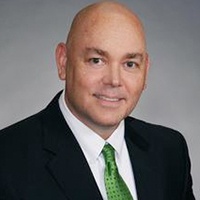Grand Chenier White Collar Crime Lawyer, Louisiana
Sponsored Law Firm
-
 x
x

Click For More Info:
-
The Law Offices of Richard L. Cooper, P.A.
848 Brickell Avenue Suite 800 Miami, FL 33131» view mapDWI/DUI, Drug Trafficking, Felony Nationally Ranked Top 40 Under 40
With Richard L. Cooper you can expect a trusted confidant who will work diligently to fully understand your case and determine a road map to help you regain control of your life.
800-756-2781
Not enough matches for Grand Chenier White Collar Crime lawyer.
Below are all Grand Chenier Criminal lawyers.
David Green
✓ VERIFIEDCriminal, Family Law, Personal Injury
David Green is a graduate of McNeese State University and has a strong background in law enforcement and criminal law. While earning his undergraduat... (more)
FREE CONSULTATION
CONTACTFREE CONSULTATION
CONTACTSharon Darville Wilson
Criminal, Personal Injury, Family Law
Status: In Good Standing Licensed: 33 Years
Ronald Cole Richard
Lawsuit & Dispute, Clean Air Practice, Criminal, Personal Injury
Status: In Good Standing Licensed: 28 Years
Bryan Forrest Gill
Government, Criminal, Bankruptcy, Personal Injury
Status: Inactive Licensed: 38 Years
Carla Sue Sigler
Other, State Appellate Practice, Criminal, Family Law
Status: In Good Standing Licensed: 24 Years
Thomas Lawrence Lorenzi
Criminal, White Collar Crime, Grand Jury Proceedings, Misdemeanor
Status: In Good Standing Licensed: 49 Years

 Richard L. Cooper Miami, FL
Richard L. Cooper Miami, FL AboutMiami Attorney at Law
AboutMiami Attorney at Law ServicesCriminal Defense
ServicesCriminal Defense

